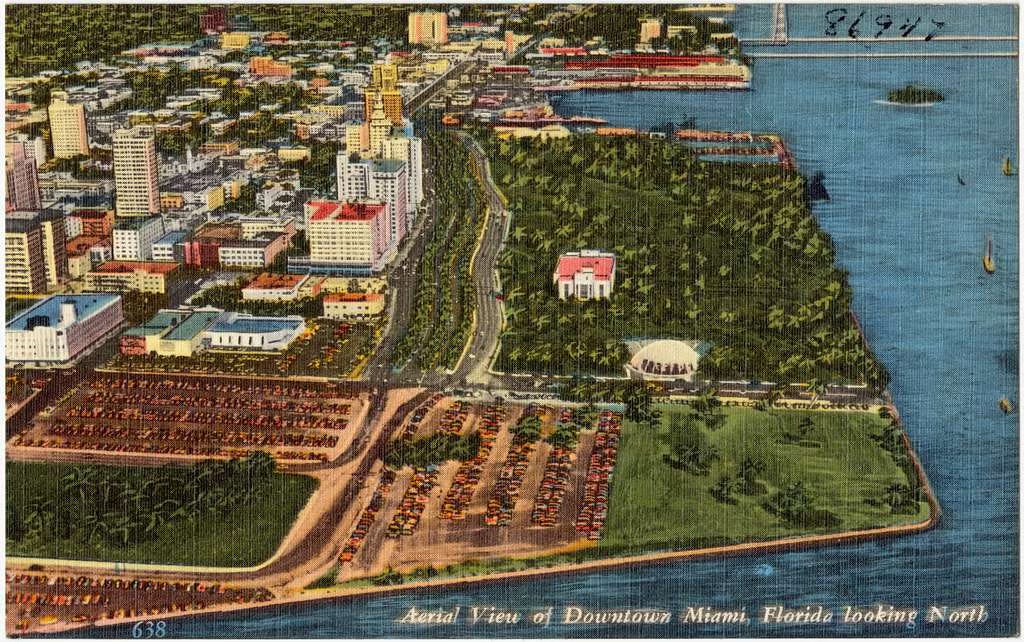Lifelong Learning and Starting a Firm at 28: An Interview With Andrew Clum of Overhead Studios
This is part of a nine-part series where three students ask three questions to architects, planners, and figures at the Congress for New Urbanism (CNU 32).
This past May, student fellows at Southern Urbanism attended the thirty-second national gathering of the Congress of New Urbanism (CNU) in downtown Cincinnati. While there, the fellows caught up with urbanists from all over the United States and beyond to chat about their work. Each interviewee was asked three questions about what they do and the goals that their work advances. The conversations have been edited for length and clarity.
Andrew Clum is the co-founder of Overhead Studios, an architecture and urban design firm based in Miami, Florida. He received his masters in Architecture from Yale University and his Bachelor of Architecture from the University of Miami School of Architecture, where he returns regularly as a guest lecturer.
AG: Could you describe what your firm does? What is your mission and what brought y’all to it?
AC: I guess the mission kind of came out of my education. We’re still involved in education and really interested in lifelong learning. So the firm, we have a super diverse set of things that we do for just being two people. We’ve done everything from furniture design and interior design all the way up to master planning and TOD planning on the regional scale.
AG: Southern Urbanism focuses specifically, as the name suggests, on practitioners working in the South and the problems or opportunities you run into specifically being in a Southern atmosphere. You’re in Miami, you said, can you speak to any of those challenges or perks?
AC: Yeah. You know, I feel like Miami is one of the few places where I would say you have to drive north to get to the South. There’s a lot of, especially financially with developers, a lot of connections with the Northeast. But generally, my experience growing up and living in Florida has been that there’s a really interesting way that the kind of rural-to-urban cultural divide, you might say, plays out.
I feel like Florida is kind of a microcosm for the United States because so many of the same issues that happen across the country happen in Florida. The financial booms and bust, Florida has been described in the past as predicting cycles. So, you know, the 2008 financial crisis started to be predicted by 2006 craziness happening in the Florida financial markets. Same thing happened in the 1920s. So yeah, I feel like it's a good microcosm for a lot of social issues and economic issues too.
AG: What were you doing before this role and what advice do you have for someone who decides to start a firm? What does that look like, making the decision that that’s how you’re going to be an urbanist, by starting a firm?
AC: Before, I had worked for a couple different firms, and I was really lucky. I was able to find a lot of mentors to kind of facilitate the kind of entrepreneurial, kind of learning spirit within me, and they supported me going off on my own. And then, in terms of timing, I had gone to graduate school for two years, so when I graduated a year ago, it was just good timing: like “Okay, now let’s get started.”
It’s really scary and emotionally taxing [to start a firm], so do what you can to—I’ve heard the advice before, “If you’re starting a company, make sure you have something like ten to twelve months of savings for expenses.” You can also live with your parents. That’s what I did for a period of time. There are going to be moments where you question yourself and question what you’re doing. The other thing is that it can be very lonely. So finding either a business partner or just surrounding yourself with friends, family, mentors that will support you when things are scary and there’s a lot of uncertainty—that’s what I would do. Just kind of gird yourself up. You’re never going to be fully prepared, but I think other people around you will help you get through any kind of storm.
Adeleine Geitner is a rising senior at Duke University studying public policy and economics. She is the Duke Urban Studies Initiative Fellow on Sprawl Repair and Nodal Development.



